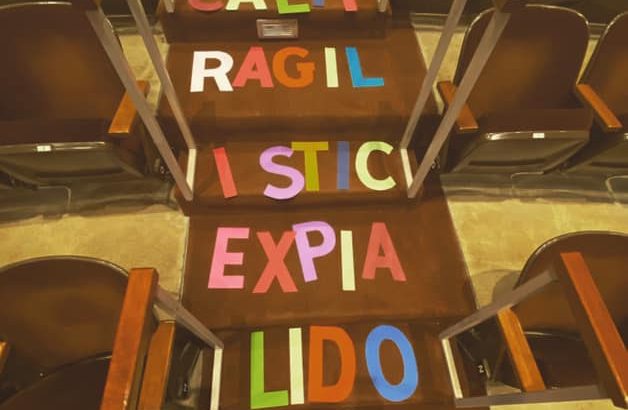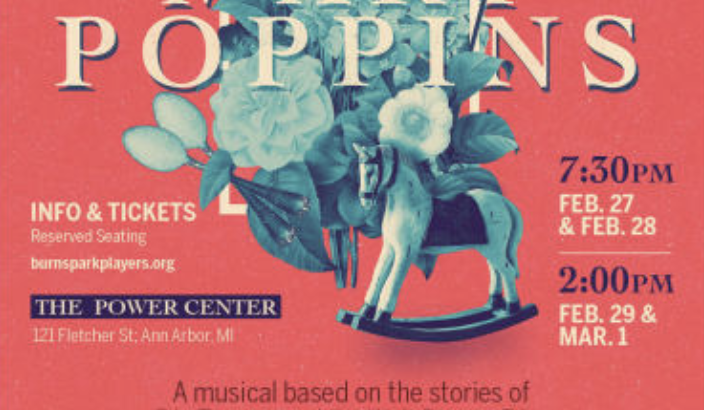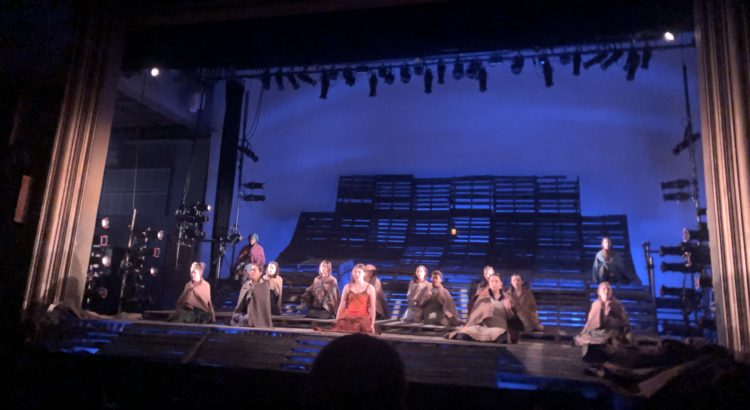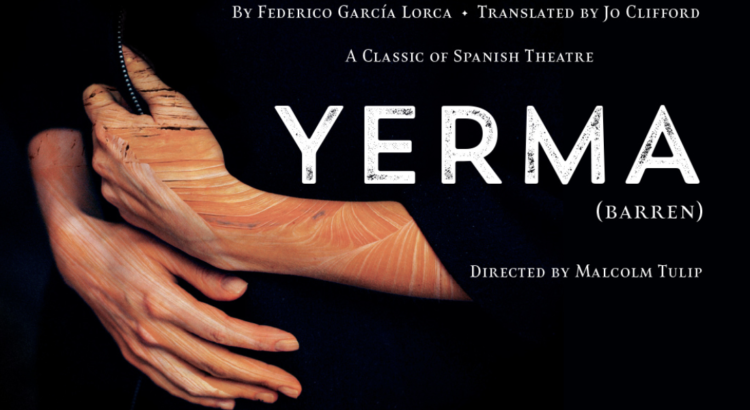It’s a real tall order to ask a live performance to be able to make magic in front of their audience’s eyes, and you can bet none of these 100+ Burns Parks Elementary students are much over 4’10”.
Somehow, the group of kids, with the help of a few adult actors, crew, and directors, did just that. From the wondrous costume design to the joyful choreography, this production succeeded in every meaning of the word.
While I might usually stick to metrics of artistry and professionalism to review a performance, this production of Mary Poppins is impossible to judge that way. It was just too darn adorable. Exhibit A is to your right. 
Emily Betz is the magician behind the costume design, which really brought the show together. The way she balances bold, whimsical colors without it being too brash or distracting is amazing. It’s no wonder she specializes in all things Disney. It takes a special, rare kind of person to so perfectly embody childishness as art in the way she does. The fact that just about everything was handmade was shocking, and I’m sure a great joy to the financial aspect of the project.
The show also featured a Queen Victoria cameo by community theatre devotee Fredda Clisham, a centennial and all-around fabulous lady. She has been in Burns Park Players shows for the past 15 years, and is known for a move where she coyly pushes up her breasts, a tradition with origins in a previous play’s improvised scene.
Several other Burns Park Players veterans were also involved in the production. The director, Rachel Carpman, has been coming to see the group’s plays since 1994. Omkar Karthikeyan, is a parent of one of the young actors, but rather than simply driving his second-grader to play practice, he got fully involved. He played the chimney sweep Bert in the production, and was totally, completely his character. As energetic as the children both on stage and in rehearsals, he is surely a permanent member of the Players family.
All of this hard work coming from a crew of around 200 children and adults is lovely to see. Local theatre groups are a gift to a community, truly. The pressure is low, but the belief in the art is great. The art of pretending, of community-building, of creating something so earnestly certainly is a magic of its own, perhaps even rivaling our favorite nanny. You can take a child’s enthusiasm for granted maybe, but the adults are also so clearly passionate about the troupe. So much joy is lost in the transition from childhood to adulthood, but some things have the power to save us. The creativity involved in a story like Mary Poppins is strong, between the costumes and the flying away via umbrella and the floating quality of the songs. It brings the performers, crew, and audience together with a present-tense nostalgia unlike anything else.
Note: As my pictures were of bad quality, taken far from the stage, I borrowed a few from what was posted on the Burns Park Players Facebook page. Photo credit to Kara Cuoio.














